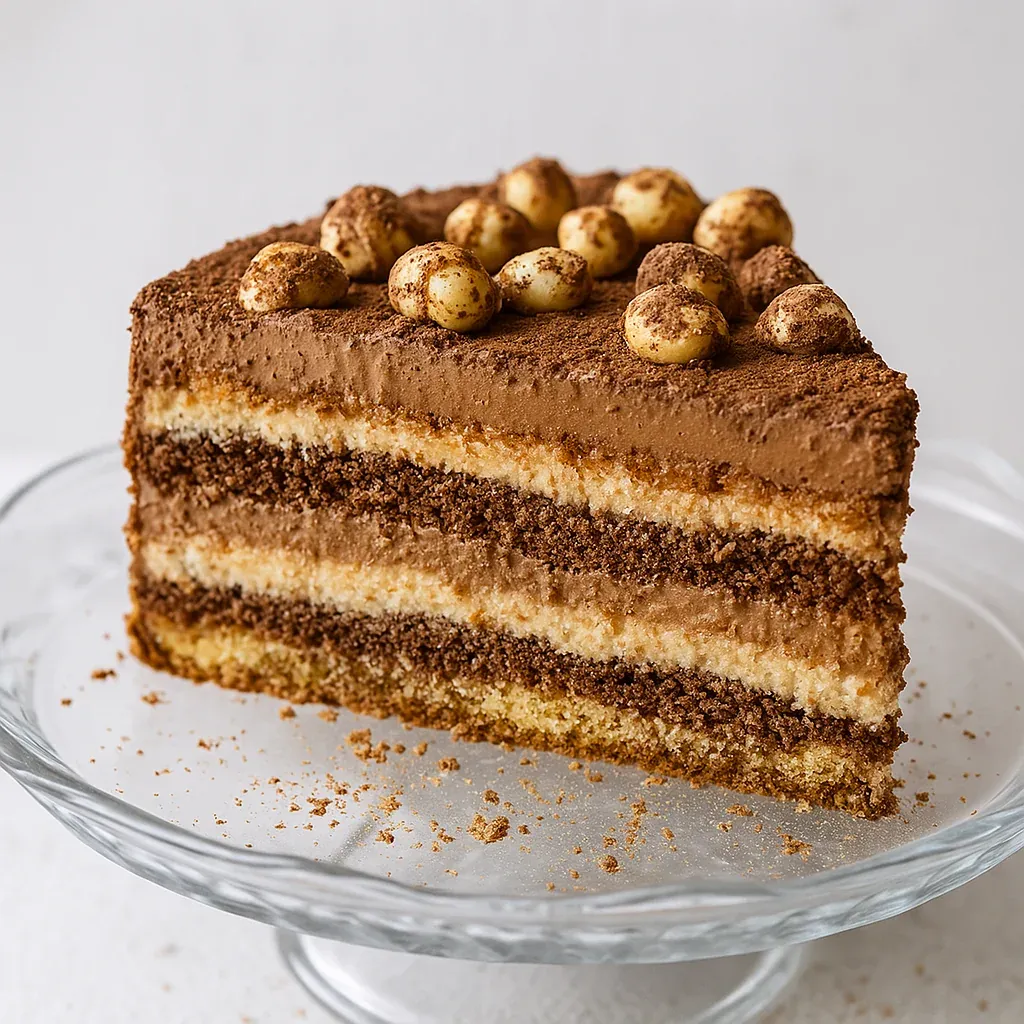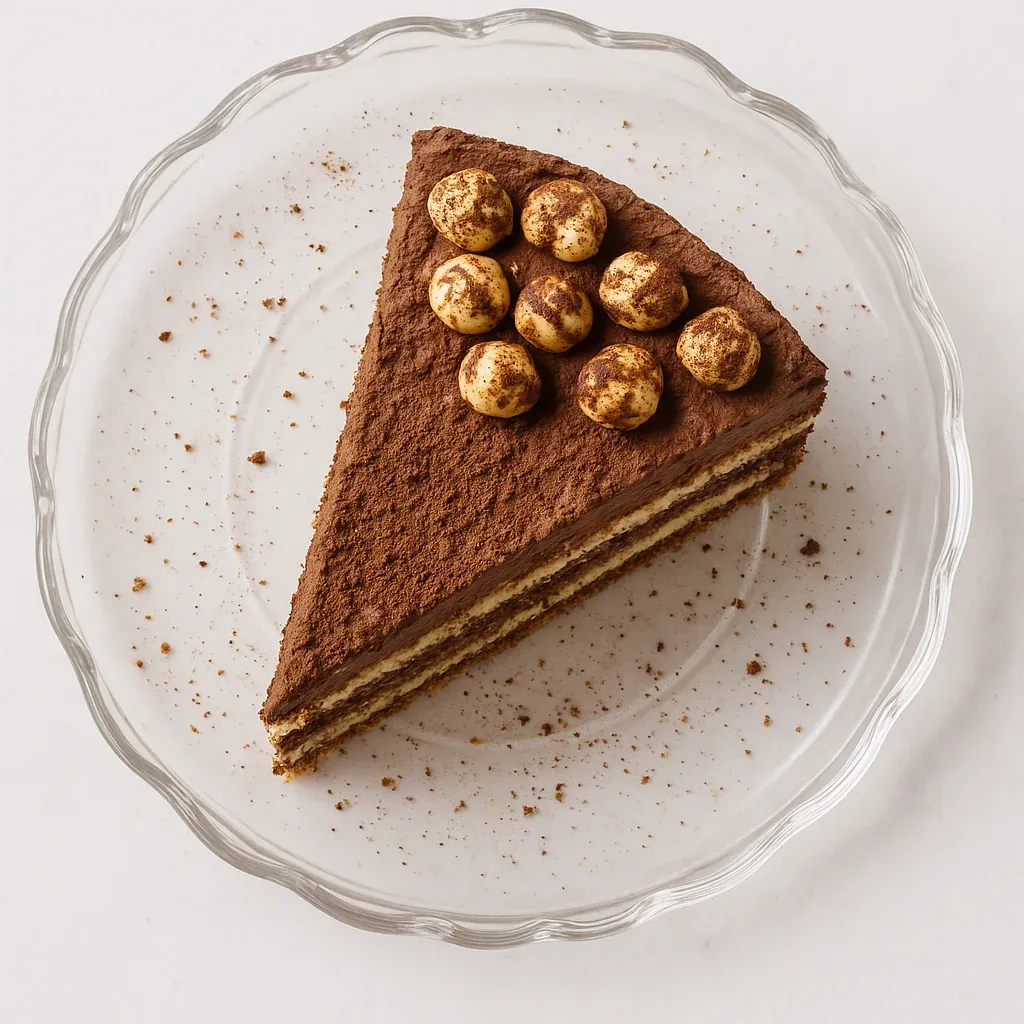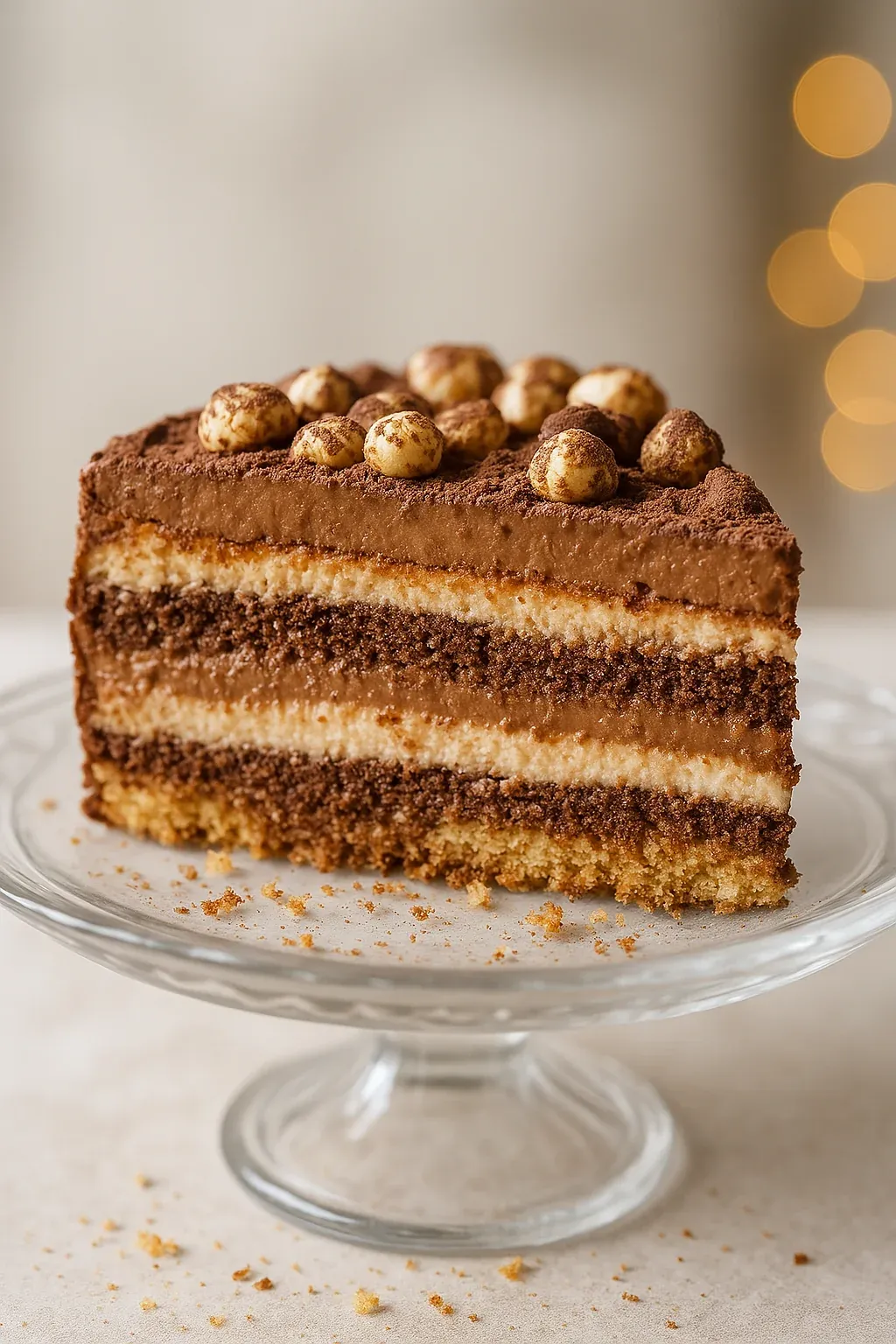 Pin it
Pin it
This hearty Egyptian hazelnut cake has been my culinary treasure since discovering it in Cairo's bustling marketplace. The golden crust sparkled in the sun, instantly captivating me with its rich aroma and cultural significance. Each bite tells the story of ancient Egyptian baking traditions while delighting the senses with layers of flavor.
I first attempted this recipe after returning from Egypt, trying to recapture that magical moment in the Cairo marketplace. What began as nostalgia has become a cherished tradition when hosting friends, who now request "that amazing Egyptian cake" at every gathering.
- Hazelnuts: Freshly roasted hazelnuts provide the foundation of flavor. Choose plump, unblemished nuts with tight skins for the best results.
- Phyllo Dough: The delicate layers create that distinctive flaky texture. Look for fresh dough in the refrigerated section rather than frozen for easier handling.
- Honey: Pure, local honey adds distinctive floral notes that enhance the complexity. Wildflower or orange blossom varieties work exceptionally well.
- Cinnamon: The warm spice notes complement hazelnuts perfectly. Use Ceylon cinnamon for a more delicate flavor profile.
- Cardamom: This aromatic spice adds subtle complexity. Freshly ground pods will provide more vibrant flavor than pre-ground options.
- Cloves: Just a touch adds depth and earthiness. Be careful not to overdo this powerful spice.
- Butter: Unsalted butter allows precise control of the salt level in your cake. European-style butter with higher fat content creates extra richness.
Step-by-Step Instructions
- Prepare the Hazelnuts:
- Toast hazelnuts at 350°F for exactly 10 minutes until fragrant and skins begin to crack. Transfer to a clean kitchen towel and rub vigorously to remove most skins. Allow to cool completely before processing in a food processor until finely ground but not oily. The texture should resemble coarse sand with small visible pieces for textural contrast.
- Create the Hazelnut Base:
- Combine ground hazelnuts with melted butter, sugar, and spices in a large bowl. Mix thoroughly until the mixture holds together when pressed between your fingers. The consistency should be moist but not wet, similar to wet sand that can be molded. This base provides the distinctive nutty foundation for your cake.
- Layer the Phyllo Dough:
- Brush each phyllo sheet generously with melted butter before layering in your baking dish. Work quickly to prevent drying and alternate the direction of each sheet for structural integrity. Create approximately 8 layers before adding half the hazelnut mixture, then continue layering phyllo and remaining hazelnut filling. Top with final phyllo layers, brushing each with butter.
- Bake to Golden Perfection:
- Score the top layers with a sharp knife in a diamond pattern, cutting only halfway through the cake. This allows the honey syrup to penetrate while creating those beautiful traditional portions. Bake at 350°F for 45 minutes, rotating halfway through, until the top is uniformly golden brown and the layers have puffed slightly.
- Create the Honey Syrup:
- While the cake bakes, combine honey, water, lemon juice, and a cinnamon stick in a saucepan. Bring to a gentle simmer for 10 minutes until slightly thickened. The syrup should coat the back of a spoon but still pour easily. Remove cinnamon stick before using.
- Finish with Syrup Infusion:
- Pour the warm honey syrup evenly over the hot cake immediately after removing from oven. You'll hear a satisfying sizzle as the syrup is absorbed into the layers. Allow the cake to rest for at least 4 hours, preferably overnight, as the flavors meld and textures develop. This patience rewards you with perfect texture and flavor integration.
 Pin it
Pin it
My grandmother always said the secret to perfect Egyptian hazelnut cake is patience. The first time I made this for my family, I rushed the cooling process and served it too soon. The difference between that hasty attempt and the properly rested version I served the next day was remarkable. The flavors had married beautifully, and the texture had transformed into that perfect balance between crisp and tender.
Storage Wisdom
Proper storage maintains the delicate balance of textures in Egyptian hazelnut cake. Keep the cake at room temperature covered with a clean, dry cloth rather than plastic wrap. This prevents condensation while protecting from dust. The cake will maintain peak quality for up to five days. If your kitchen runs particularly warm, you can refrigerate after the first two days, but always bring to room temperature before serving to revive the textural contrast between crisp top and tender middle.
Cultural Significance
In Egyptian culture, hazelnut cake represents both celebration and hospitality. Traditionally served at weddings and religious festivals, offering this dessert to guests demonstrates both respect and affection. The labor-intensive preparation process symbolizes the value placed on the recipient, making it more than just food but a gesture of deep appreciation. When serving this cake, you're participating in a centuries-old tradition of welcome that transcends mere sustenance.
 Pin it
Pin it
Modern Adaptations
While traditional Egyptian hazelnut cake follows time-honored techniques, contemporary interpretations offer exciting variations. Some bakers incorporate chocolate ganache between layers, creating a fusion dessert that honors tradition while introducing new flavors. Others experiment with different nuts like pistachios or almonds, maintaining the technique while showcasing regional ingredients. Even gluten-free versions using almond flour in place of phyllo have emerged, demonstrating how this classic continues to evolve while respecting its origins. The most successful adaptations maintain the essence of the original while thoughtfully incorporating new elements.
Serving Suggestions
The way you present Egyptian hazelnut cake significantly impacts the dining experience. For casual gatherings, serve wedges on small plates with a light dusting of powdered sugar and fresh mint leaves. For formal occasions, create an elegant dessert plate with a thin slice of cake accompanied by a quenelle of cardamom-scented whipped cream and a drizzle of warm honey. The cake pairs beautifully with Turkish coffee, whose intensity complements the sweet nutty flavors, or with traditional mint tea for a refreshing contrast to the rich dessert.
Frequently Asked Questions
- → What makes the Egyptian hazelnut cake unique?
Its combination of roasted hazelnuts, flaky phyllo layers, and sweet honey syrup highlight traditional Egyptian flavors.
- → Can I use pre-ground hazelnuts?
Using freshly roasted and ground hazelnuts is recommended for optimal flavor and aroma, but pre-ground can work in a pinch.
- → How do I prevent the phyllo from drying out?
Keep the phyllo dough covered with a damp cloth while layering to maintain its elasticity and prevent cracking.
- → How long does the cake stay fresh?
Stored in an airtight container, it stays fresh for up to three days at room temperature or a week in the fridge.
- → Can I freeze the cake?
Yes, wrap it tightly before freezing for up to two months. Thaw in the refrigerator overnight before serving.
- → What can I serve with this cake?
Pair it with jasmine tea, Arabic coffee, or mint tea to complement the rich flavors of the dessert.
